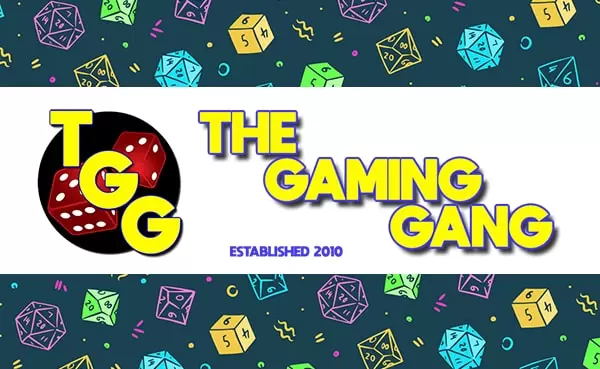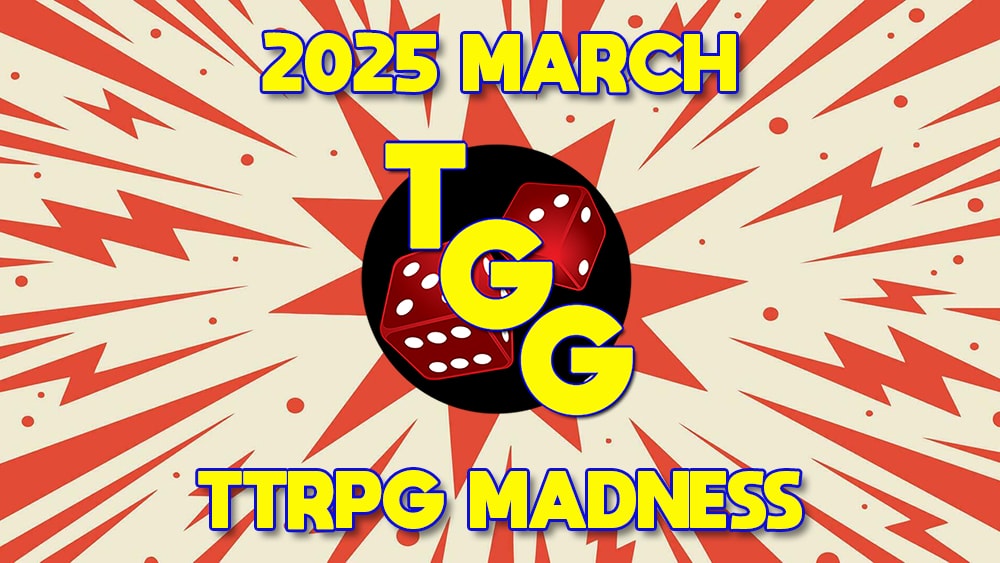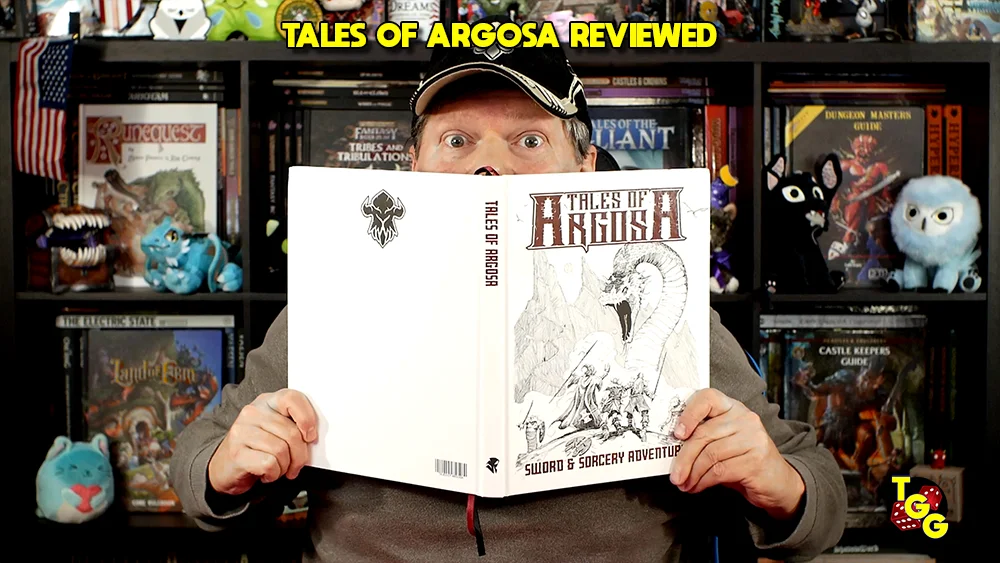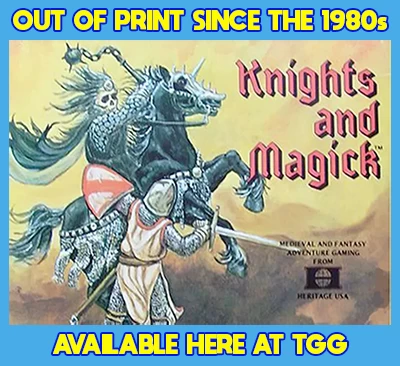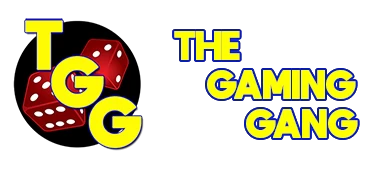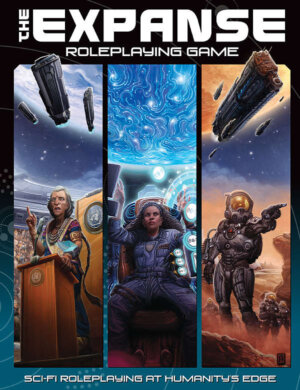
Publisher: Green Ronin Publishing
Year: 2019
Authors: Steve Kenson, Seth Johnson (Future History, Technology), Ian Lemke (The Expanse Series, To Sleep, Perchance to Dream), Rich Lescou air (Game Mastering, Threats), Rob McCreary (Earth), Jason Mical (Orbital Mechanics), Neall Raemonn Price (Mars, The Belt), Zack Walters (Rewards), and Nicole Winchester (The Outer Planets)
Illustrators: Victor Leza Moreno, Biagio D’alessandro, Mirco Paganessi, Andrey Vasilchenko, Javier Charro, Victor Leza Moreno, Stanislav Dikolenko, Damon Westenhofer, and Eric Williams
Genre: Somewhat hard science fiction roleplaying based on the series of novels from James S.A. Corey
Pages: 253 pages
Price: $26.95 PDF /$49.95 Print
Spanning a growing series of Hugo-nominated novels and having spawned a critically-acclaimed television series, The Expanse now comes to your local gaming table, thanks to a faithful and fun adaptation by Green Ronin Publishing.
The Expanse runs on the same Adventure Game Engine (AGE) system that also powers both the Dragon Age RPG and Blue Rose. AGE is a flexible d6-based system that is easy to pick up, but still provides for depth and customization. The three d6 required to play the game also make it an attractive option for those new to the hobby who may not have on hand the comparatively specialized assortment of polyhedral dice that some other systems require. The only real complication is that one of these dice will be the drama die, and must be different colored from the rest to distinguish it.
Character creation is likewise designed to be beginner friendly, with clear explanations and examples throughout. Players roll to determine their scores in each of nine core abilities: accuracy, constitution, fighting, communication, dexterity, intelligence, perception, strength, and willpower. Each ability is succinctly explained, further helping to reduce confusion. Players may also swap out any two ability scores to ensure they are happy with the character at hand. Players also choose an origin, background, profession, and drive. Each adds to the character’s ability foci, allowing for an impressive degree of refinement. Those who are new to roleplaying may also appreciate the greater structure to character creation, which offers no shortage of scaffolds to aid in converting a character from a series of statistics and skills to a living, breathing denizen of the world.
Leveling up is a straightforward affair, regardless of origin, profession, or drive. While this may initially seem to be less flavorful than Dungeons and Dragons’ style of specialization, The Expanse instead gives players a wider latitude to progress directly in reaction to events of the story. A Belter, for example, who spends an extended time on Earth might use a 
While The Expanse is based on a series of novels, and while the game does advise players that spoilers for some of the books may be present, the game’s appeal is by no means limited to existing fans of the franchise. Newcomers are supported by sufficient worldbuilding woven in throughout character creation that feels natural enough not to burden those already familiar with needlessly detailed explanations. The “expanse”-ive sections on the history of the future, Earth, Mars, the Belt, and the Outers are wisely positioned at the end of the player-oriented section, allowing players who know and love the world to bypass them while still offering a thorough grounding for those in need.
The inclusion of these chapters also highlights for GMs the variety of stories and plotlines The Expanse is built to accommodate. A game of political intrigue and maneuvering is every bit as feasible as one of crime and adventure among the stars. This flexibility gives the game a broad appeal and helps to encourage innovative uses of the world and settings.
The book’s layout is clear and clean, with an appreciated emphasis on screen readability. There seems to be an issue with the table of contents linking to the correct page number when tested in Preview or Adobe Acrobat, with bolded sections being more reliable than sub-categories. All things considered, this is a minor inconvenience and doesn’t measurably detract from the quality of the PDF. The plethora of art —all full color—helps to add to the sense of atmosphere and worldbuilding, and keeps the layout of the book from feeling dense or claustrophobic.
While The Expanse’s obvious appeal is to fans of the novels or television show, it’s a worthy investment for any fan of cerebral sci-fi storytelling. The easy to learn system and clear layout make the game a solid choice for beginners; the diversity of character creation and advancement offers no shortage of opportunity for experienced players and allows character growth to feel truly story-driven. Taken as a whole, The Expanse is a strong addition to the library of any space opera-inclined gamer.
[rwp-review id=”0″]
